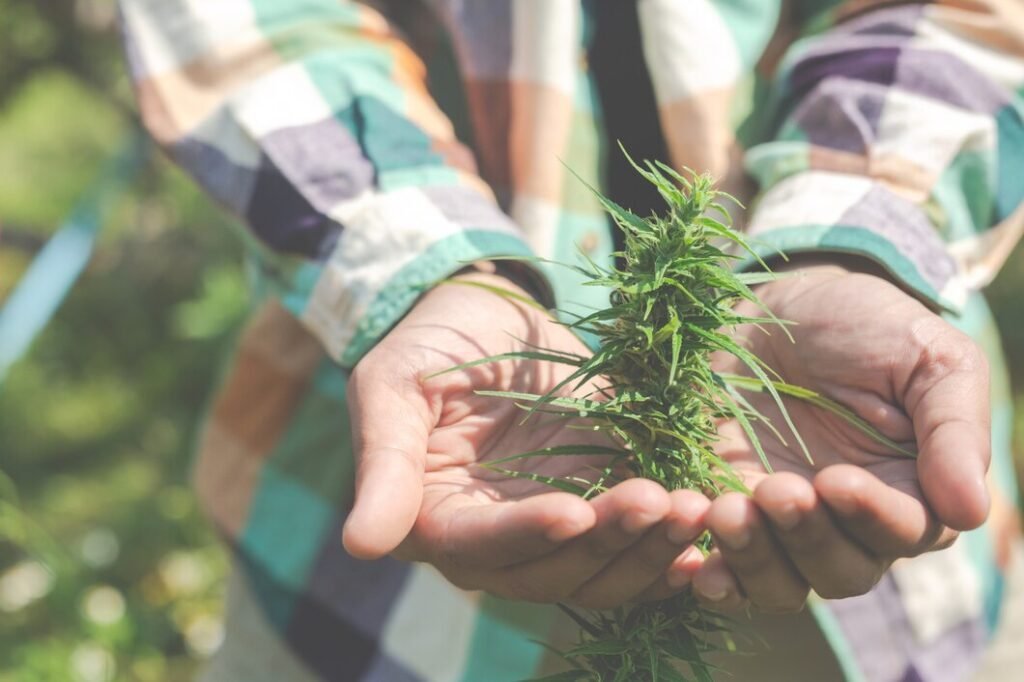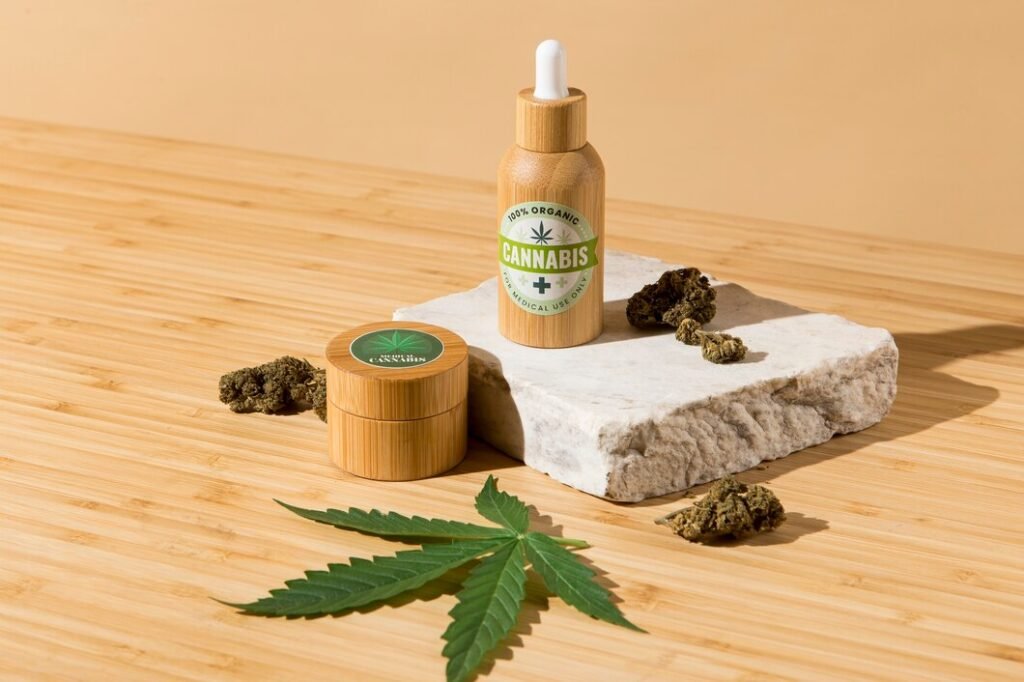Delta-9 THC at Cbdflex:
Introduction
In recent years, the spotlight on hemp has widened, with more attention given to its various components and their potential advantages. One such compound that has gained significant interest is delta-9 thc, commonly known as Delta-9 THC. This blog aims to delve into the intricacies of Delta-9 THC, shedding light on its mechanisms, advantages, consumption methods, and the ever-evolving landscape of hemp legalization in the United States.
What is Delta-9 THC?
Delta-9 tetrahydrocannabinol (THC) is the primary psychoactive constituent found in cannabis. Its chemical structure is characterized by a molecular formula of C21H30O2, which comprises a phenolic hydroxyl group alongside a long hydrocarbon tail. This unique composition allows Delta-9 THC to engage effectively with the body’s endocannabinoid system (ECS), specifically the CB1 receptors located predominantly in the brain and central nervous system. The activation of these receptors leads to various effects, typically associated with the ‘high’ experienced by users.
The discovery of Delta-9 THC dates back to 1964 when Israeli chemist Raphael Mechoulam first isolated this compound. Since then, significant research has highlighted its diverse properties, establishing its importance within both recreational and medicinal cannabis use. Delta-9 THC is not a singular compound, as it exists alongside numerous other cannabinoids, such as CBD (cannabidiol), as well as various terpenes that can contribute to the overall experience and effects of different cannabis strains.
In terms of legal status, Delta-9 THC remains a contentious subject. In various jurisdictions, it is classified under controlled substances, with its legality dependent largely on the concentration of THC within cannabis products. For instance, strains of cannabis with higher percentages of Delta-9 THC are often seen as more potent, influencing their desirability among recreational users. Conversely, CBD-dominant variants with minimal amounts of Delta-9 THC are increasingly popular for their therapeutic potential without significant psychoactive effects. Understanding Delta-9 THC, therefore, is crucial for individuals exploring cannabis for both recreational enjoyment and potential health benefits.
The Endocannabinoid System and Delta-9 THC
The human body is equipped with an intricate network called the endocannabinoid system (ECS). This system comprises receptors, endocannabinoids produced by the body, and external compounds like Delta-9 THC. The primary receptors involved are CB1 and CB2, found in the central nervous system and peripheral tissues, respectively.
When Delta-9 THC is consumed, it binds to CB1 receptors in the brain, disrupting normal neurotransmitter function. This interaction is what leads to the characteristic psychoactive effects associated with hemp use.

How Delta-9 THC Works
The psychoactive effects of this compound stems from its ability to mimic the structure of the body’s own endocannabinoids. This mimicry allows the compound to bind with CB1 receptors, affecting various cognitive and physical functions. The specific regions of the brain impacted by Delta-9 THC include those responsible for pleasure, memory, coordination, and time perception.
Mechanisms of Action
Delta-9 THC influences the release of neurotransmitters, particularly dopamine, leading to feelings of euphoria and relaxation. Additionally, it alters the way sensory information is processed, resulting in changes to perception, time, and coordination.
Advantages of Using Delta-9 THC
While the recreational use of Delta-9 THC is well-documented, the compound also holds potential constructive advantages. Research suggests that it may be effective in managing various conditions, including:
1. Discomfort Recovery
This compound has analgesic properties, making it a potential option for managing chronic discomforting conditions.
2. Appetite Stimulation
Individuals undergoing treatments that suppress appetite, such as chemotherapy, may advantages from the appetite-stimulating effects.
3. Antiemetic Properties
It has demonstrated antiemetic (anti-nausea) effects, offering recovery for patients undergoing chemotherapy or experiencing nausea due to other conditions.
4. Mood Enhancement
Note that, Some users report it has improved mood and reduced symptoms stress with controlled Delta-9 THC consumption.
5. Relaxation Aid
In certain cases, it also may aid in promoting relaxation and improving chilling quality.
Consumption Methods
As the popularity of Delta-9 THC grows, so does the variety of consumption methods available. Each method offers a unique experience, and individuals may choose based on personal preferences, lifestyle, and desired effects.
1. Smoking
Obviously, One of the traditional and quickest ways to feel the effects of it is smoking dried hemp flowers. This method involves inhaling the smoke, which rapidly delivers the compound to the bloodstream.
2. Vaporization
Vaporizing, or “vaping,” involves heating hemp at a lower temperature than combustion, producing a vapor that is inhaled.
3. Edibles
Edibles encompass a wide range of products infused with this specific compound, including gummies, brownies, and beverages. The onset of effects is typically slower but longer-lasting compared to smoking.
4. Tinctures
Tinctures are liquid extracts of hemp , often placed under the tongue for sublingual absorption. This method allows for precise dosing and quicker onset compared to edibles.
5. Topicals
For localized recovery without the psychoactive effects, topicals like creams and balms can be applied directly to the skin.

hemp Legalization in the USA
The legal status of hemp in the United States has undergone significant changes in recent years. While hemp remains illegal at the federal level, individual states have taken steps to legalize recreational use.
Hemp Legalization
As of [insert date], [number] states in the U.S. have legalized the use of hemp . These states typically have established hemp programs, allowing qualified patients to access hemp products with a doctor’s recommendation. Some conditions commonly approved for hemp use include chronic discomfort, epilepsy, and cancer.
Recreational hemp Legalization
The movement toward recreational hemp legalization has gained momentum, with [number] states and Washington, D.C., permitting adult-use hemp. In these jurisdictions, adults over a certain age can legally purchase and possess hemp for recreational purposes. Regulations vary by state and may include restrictions on cultivation, possession limits, and consumption locations.
Conditions for Legalization
States that have legalized hemp for recreational use often have specific conditions and regulations in place. These conditions may include age restrictions, licensing requirements for dispensaries, and guidelines for responsible use. Additionally, some states limit the possession and cultivation of hemp for personal use.
FAQ:
Q1: What is Delta-9 THC?
A1: A psychoactive compound found in hemp plants. responsible for the characteristic “euphoria” associated with hemp use.
Q2: What are Delta-9 THCA products?
A2: These products refer to items containing delta-9 thca, a precursor to the same compound. These products may require decarboxylation, usually achieved through heating, to activate the psychoactive effects.
Q3: What is a Delta-9 THC preroll?
A3: A preroll is a pre-rolled hemp joint or cigarette containing dried hemp flowers with a specific concentration of mentioned compound.
Q4: Where can I buy Delta-9 THC?
A4: You can purchase them from licensed dispensaries in states where hemp is legal. Ensure compliance with local laws and regulations.
This compound continues to be a subject of intrigue and exploration, both for recreational users and those seeking potential constructive advantages. Understanding its mechanisms, advantages, and legal landscape is crucial for making informed decisions about its consumption. As hemp laws evolve, staying updated on regulations and responsible use practices becomes paramount in navigating the world of hemp .



2 thoughts on “Best Delta-9 THC”